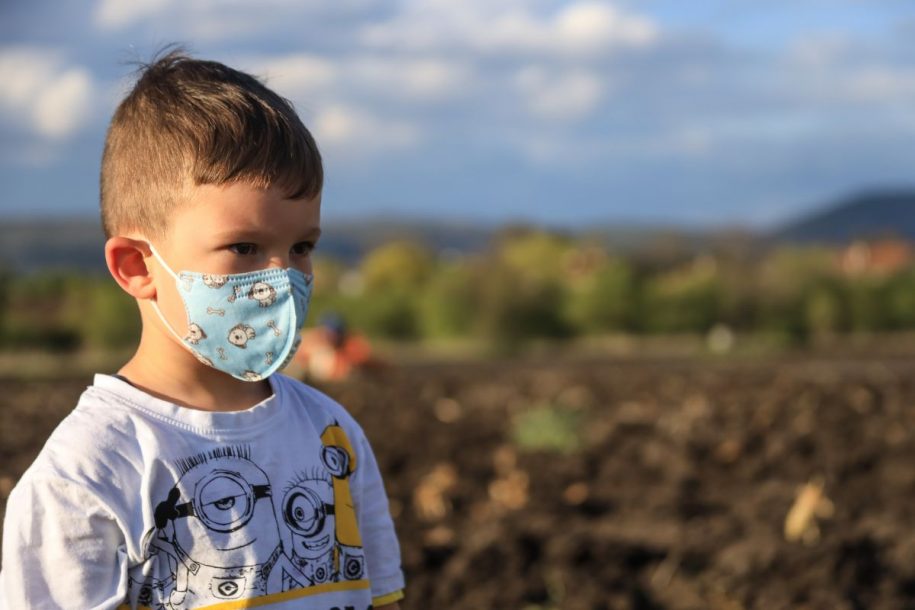Life after lockdown: Winter immune support for children with special needs
By Allison Riehs | Naturopath
Life is entering a ‘new normal’ as lockdowns are lifted across much of Australia and communities emerge from months of isolation.
But for families of children with special needs, it’s not quite that simple.
Whether they’re living with disabilities, disease, neurological disorders or autoimmune conditions, our children are often more vulnerable to viruses and other illnesses.
While Coronavirus remains active in some communities, the risk of transmission still exists. Add to that the cooler weather and the annual rise in cold and flu cases, and our attention turns to supporting immune health.
A lot of families will stay isolated for many more weeks and even months to come. But eventually we will all need to return to society, and want to ensure our children’s health is as resilient as possible.
Some of the ways we can support children’s health naturally in the winter months include:
Food: Nutrient-rich foods are just one of the ways we can support immune health naturally. This means minimising processed and packaged foods, avoiding sugar, and focusing on fresh, seasonal wholefoods.
Some of the key winter foods for immune health include:
- Citrus: Citrus fruits are easy to find during the cooler winter months, and provide a healthy dose of Vitamin C to support immune health. Offer children mandarins and oranges as whole fruits (cut to age-appropriate sizes) rather than juices. Lemons, limes and grapefruit might not appeal as much to the palettes of children, but can be added to other foods to offer nutritional benefits.
- Orange foods: Orange and yellow coloured foods like pumpkin, carrot and sweet potato are rich in beta-carotene, which converts to Vitamin A in the liver. Vitamin A plays regulatory roles in cellular immune responses and has demonstrated therapeutic effect in the treatment of various infectious diseases. These foods can be steamed and roasted or pureed for ease of feeding.
- Fish: Omega 3 fatty acids in fish are known to reduce inflammation, but studies have now found DHA can enhance B cell activation and antibody production, actively supporting immune health. Choose deboned fish, cut into strips and lightly dip in egg or milk of your choice, and crumb with coconut or tapioca flour and dried herbs before frying to create your own ‘fish fingers’.
- Red Capsicum: Capsicum is one of the many foods with more Vitamin C than oranges, but it’s not often you’ll see a child volunteer to eat one. Cut them into sticks and serve with a yummy dip or consider making them into a ‘smiley face’ with a plate of other vegetables. You can also roast capsicums and puree into a sauce.
- Greens: Broccoli, spinach, kale, spirulina and fresh herbs are all rich in antioxidants, flavonoids and other key minerals for supporting immune health. If your child isn’t a fan of greens, find ways to disguise them in other meals they do enjoy, pulse into a pesto or chimichurri, or blend into a smoothie.
Supplements: Balanced eating is more challenging for fussy eaters, children with food allergies, aversions and textural sensitivities, and those who require PEG or NG tube feeding. For these children, supplementing key nutrients is critical. But all of us can often benefit from supplementing due to insufficient diets, and nutrient deficiencies in Australian soil. It’s not as simple as purchasing a multivitamin off the shelf, though. Working with a nutritionist or naturopath is a great way to identify which nutrients need boosting, and find suitable targeted supplements to address them, such as non-flavoured, liquid options.
Gut health support: You might have heard the saying, good health starts in the gut. And it’s true. When we think of colds and flu, we’re often distracted by how to treat blocked sinuses, coughs, sniffles and sore throats. But we can improve immune function and even protect against respiratory infection by supporting the microbiome with prebiotic foods and probiotics.
Sleep: All parents know the battle of getting children to sleep – or to stay asleep through the night. Particularly if they have pre-existing conditions, medications or medical equipment to contend with. But sleep is essential to homeostasis, and research has found a bidirectional relationship between sleep and immunity. That means good sleep can influence good health, and good health can influence good sleep. But the opposite is also true. So try to establish a healthy sleep routine with children, and stick to it even if your schedule is changing due to Covid19, home-schooling or other interruptions.

